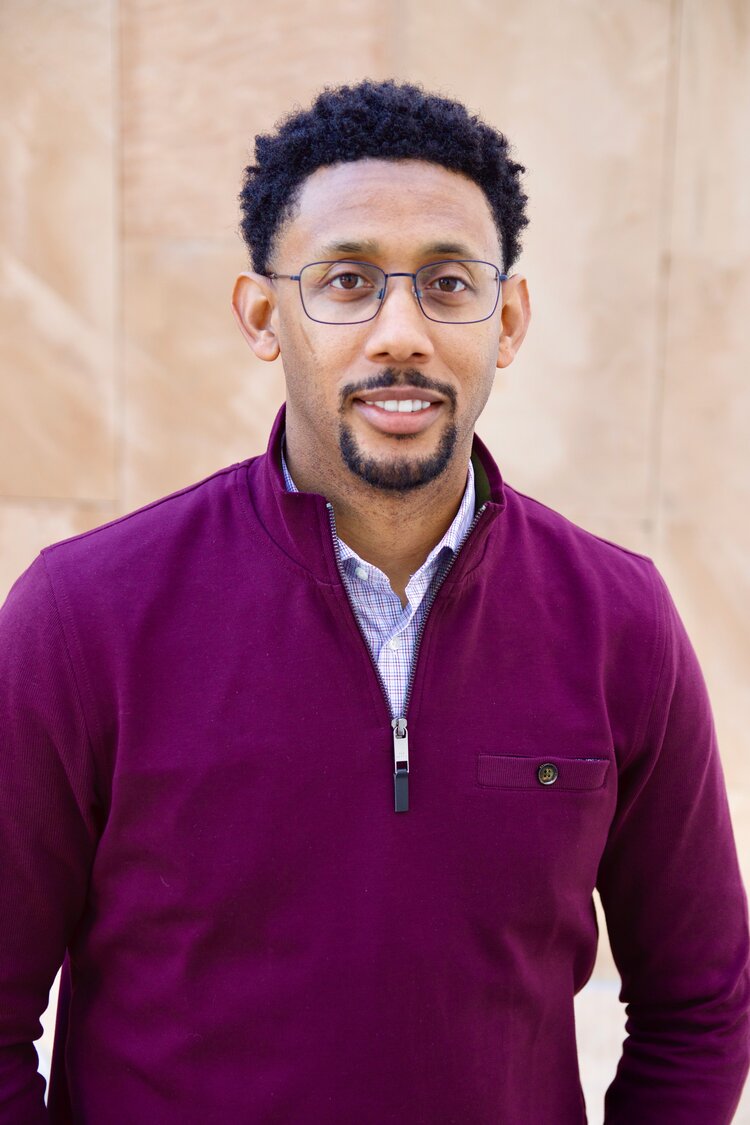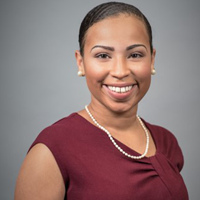Published on October 15th, 2020
By Megan Eales Monroe
The events of 2020 have energized leaders across the entire real estate industry to make a strong push for diversity and inclusion in their organizations.
In the latest episode of The Top Floor, we call on a panel of experts to better understand the current status of diversity in property management and real estate.
The team at AppFolio reached out to Melissa White, Jasmyn Sylvester, and Josh Childress to help answer one key question: How can leaders in the real estate industry make their organizations more diverse, inclusive, and equitable? Along the way, they also discuss:
- The characteristics of diverse leadership teams in real estate
- The value of inclusivity within leadership roles and real estate organizations
- Best practices for championing diversity in the real estate industry
Listen Now:
Episode Transcript
Narrator: We hear the word diversity all the time. But what do we actually mean when we say it? When you reflect on your unique workplace, you might see differences between yourself and your coworkers. But this term – diversity – points to particular types of differences between us.
Melissa White: Diversity meaning, the best definition I can give you, is cultural and ethnic variety, for lack of a better word. And it’s human nature, same attracts same, right?
Narrator: This is Melissa White. Melissa is the director of operations at The Kool Source – spelled with a K – an Atlanta-based digital marketing agency. She’s also the CEO of The Activation Hour Coaching & Consulting, and a key player with the National Apartment Association Education Institute.
Melissa White: It’s training ourselves to realize like, “Wait, I’m seeing much of the same and I’m not seeing enough diversity to capture the essence of not just who we are in totality, but also our client.” Right?
Narrator: Jasmyn Sylvester, the chair of the Diversity Advisory Board at the Institute of Real Estate Management and a Diversity Scholar, offers another definition. While there are a number of ways to define diversity and inclusivity, Jasmyn likes to frame them in the context of a social gathering – something we’re all familiar with – and adding to the conversation: equity and inclusivity.
Jasmyn Sylvester:There is an additional element to diversity and inclusion and I think that it is often excluded from the equation and that will be equity. So to better differentiate between the three of diversity, inclusion and equity, I love the quote that explains it best, “Diversity is where everyone is invited to the party, equity means that everyone gets to contribute to the playlist and inclusion means that everyone has the opportunity to dance.”
Narrator: So just to recap: as Jasmyn defines these terms, diversity means everyone is invited to the party, or in our case, the workplace. Equity means everyone gets to contribute. And inclusivity means everyone gets to participate.
Still with us? We’ll circle back to Jasmyn later in the episode. But for now, let’s get acquainted with Josh Childress – who is probably familiar to those of you who follow professional basketball.
Josh Childress: Yep …
Narrator: Josh played forward and point guard on several NBA teams, including the Atlanta Hawks, Phoenix Suns, and Brooklyn Nets.
Josh Childress: So my name is Josh Childress, originally from Compton, California. I went to undergrad at Stanford University where I got my degree in Sociology.
Narrator: After graduating in 2004, Josh spent the next fifteen years playing for those NBA teams we’d mentioned, as well as for teams in Australia, Japan and Greece. Post-basketball, he started a real estate and investment firm called Landspire Group, which focuses on under-resourced communities, such as his hometown, Compton.
Josh Childress: So I co-founded Landspire Group with my former college teammate and roommate, Justin Davis, with the intent on investing into communities that are under-resourced, number one, but also what prompted our starting the company was the Opportunity Zone legislation.
Narrator: This program gets a bit complicated. But in a nutshell: the Opportunity Zone legislation is a government program that identifies areas for investment, Josh says – and investors get a reduced tax basis over several years. After ten years, they can either sell or get rid of the property with no capital gains tax. And it’s for these reasons, Josh explains, that the program tends to attract wealthy people or corporations.
Josh Childress: So that automatically kind of shuts the program off for the local community at large, as you have to have sold the business or sell off appreciated stock in order to invest in these zones, and then hold it for 10 years, and then you pay no gains tax on that gain.
Josh Childress: Most of the investment would come from individuals that have no ties and/or connection to the community whatsoever. And so usually when that happens, it’s a path towards gentrification and the community stakeholders at large don’t actually really get a chance to participate in the upswing of the neighborhood. And so for us, it was about how can we go into these communities and be the investor-developer, refurbish these areas, but also take the community at large into consideration and help empower them to participate in the revitalization of the community as well.
Narrator: Josh points to diversity-related issues in the industry to explain this further.
Josh Childress: I think minority representation and diversity in general in the real estate space is sorely needed. It’s a predominantly white male industry. And I think there’s different perspectives and different ideas that come from diversity.
If I go into a community and speak about the type of programming I’d like to put in place to help the community at large, I actually have a vested interest because I know what that community needs, and I can relate to those local stakeholders because I look like them. And there is an immediate, I’d say, sense of trust in that regard.
Narrator: Here, Josh is outlining why diversity is a crucial part of the real estate and property management industries. Speaking for himself, growing up in under-resourced areas allows him to adopt the unique perspective that is necessary to craft solutions for the communities where he and Landspire Group are investing. On top of that, there is trust and community buy-in, which are vital to any successful investment.
So far our experts have helped us define diversity, equity and inclusivity. And they’ve provided valuable insights into the current state of diversity in these industries, and why it’s so important leadership roles are filled by diverse people. So, what’s the recipe of a diverse and inclusive organization? Here’s Melissa White again.
Melissa White: You can have diversity, companies will call themselves diverse, and that doesn’t mean they are inclusive…You can be inclusive and not be diverse. However, you have the maximum impact of cultural awareness, of cultural voice when you have the two together.
Narrator: To do this, Melissa recommends being an “advocate for equitable voices.”
Melissa White: Meaning, whether you’re … an onsite team member, a leasing professional, a community manager, maintenance technician, the groundsperson, doesn’t matter. Because everyone has different vantage points and a perspective that tells the collective story. Are you, one, talking yourself about the issue and are you making space for your people to talk about the issue in a constructive way?
Narrator: She also suggests getting outside.
Melissa White: If you have created a lifestyle and a culture of connectivity, then it’s not foreign … for you to be boots on the ground. For you to do a site visit and not just be stuck in the office on a computer, but literally walk. Go on a tour with your leasing specialist and ask questions. “Hey, tell me about these things. What are your pain points?”
And listen, if you’re doing that now, it’s not so hard to do that when a major event occurs and it doesn’t feel so awkward and strange to your people and that’s okay. If it is awkward, do it, but be consistent so that people see that it’s authentic.
Narrator: While the industry suffers from issues related to diversity, there are bright spots. For its part, the NAA’s Education Institute administers the Alexandra Jackiw Diversity & Inclusion Scholarship to help fund professional development opportunities for people who identify as a racial and ethnic minority; as lesbian, gay, bisexual or transgender; or as a person with a disability. One such recipient is Melissa White.
Melissa White: I’m forever grateful to Alexandra Jackiw, to NAA, because of that leadership experience, which at the time, when I was a recipient, the award was to participate in the Dale Carnegie Leadership Program. That left an indelible impression because it taught me how to manage executive level conversations. How to develop my own leadership style and to craft that in a way that did not leave out my own personal experience.
I’ve been in the property management industry for, this is my 16th year, which I’m very endeared to the industry. It has not only helped me mature my view in helping and serving people, but just a vast amount of opportunities. I can’t think of very many industries that allow you to create a path, and property management has allowed that. I think that’s one of the necessary things when you talk about Diversity and Inclusion, is creating paths that don’t exist or previously have not been available. And the scholarship allowed an opportunity for that.
Narrator: It’s clear that organizations like NAA are taking strides to help diversify the industry. But there’s so much more to be done. How can you create a more inclusive environment? For that answer, we turn to Jasmyn Sylvester, who we heard from at the top of the show. Here, she references a D – E – I plan, which is short for diversity, equity and inclusion.
Jasmyn Sylvester: I believe that a DE&I plan, it’s basically a formalized strategy that specifies what action steps are to be taken to better integrate DE&I into a company or organization in strategic plan. Every good company has strategic planning, where they go back to the drawing board, see what works, what didn’t work, and DE&I needs to be embedded in a corporation’s infrastructure at every single level. DE&I plans need to be a part of the company’s core values and it needs to be understood across all tiers of leadership.
Narrator: Putting a D-E-I plan into action, Jasmyn says, begins by simply asking questions.
Jasmyn Sylvester: I think it’s a very important piece to this, reaching out to those who may have experience in DE&I consultation or establishing work groups, which is something that could be a more fiscally responsible thing. Or, may a more so hands-on approach by creating a focus group within the company composed of the minorities with that organization from all levels, meaning your executives who may be of color or from different diverse backgrounds, the employees and/or workers, as well as some of the board members who you may have that may be of various differing backgrounds so that everyone can contribute to the conversation. That’s where that equity piece comes in, right?
Narrator: Another step is education.
Jasmyn Sylvester: Diversity training is great, especially training that facilitates checking biases. We all have unconscious bias, we all have them and checking microaggressions, it happens, and how to deal with adversity and/or pushback from those who are uncomfortable with the changes that could potentially be made, how do you deal with that? I think that this sort of training and recommendations could definitely help all employees, but more specifically leadership positions, board members, your executives, the hiring managers, HR.
Narrator: And finally, there’s the rollout.
Jasmyn Sylvester: Once you have a formalized action plan, then there comes the implementation. Okay, you said you’re going to do something, so let’s do it. And I think this communicates so well to those employees who are looking for change, who need change, and it communicates on various different levels that you’re actually implementing the things that you said you were going to be supportive of. And the focus group, you took heed to their recommendations and have actually put them into place. I think it gives the employees a sense of ownership within the company and a feeling of value in the company as well.
Narrator: It’s time to take the next step and create a more diverse and inclusive organization. What’s stopping you?











Comments by Megan Eales Monroe
Consistency Is Key: 5 Ways to Help Property Management Teams Work More Effectively and Efficiently
Hi there Ryan! We definitely have solutions that make sense ...
How Will Rent Control Impact Property Management Companies in 2020?
Hi Frank - the Consumer Price Index (CPI) is used as a ...
What is AI, and How is it Transforming the Real Estate Industry?
Hi there, Kim! The price depends on your business' ...
There’s a Better Way to Get Work Done: How to Maximize Team Performance through Experience
Hi Amanda, We'd be happy to provide you with more info! ...